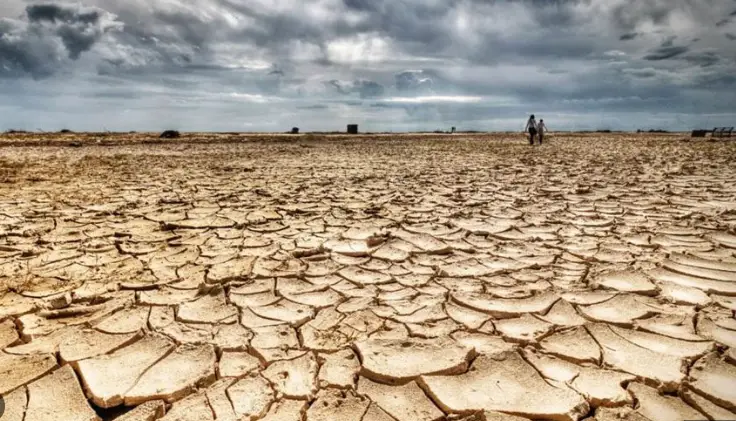Greenhouse gas emissions continue to rise and the global average temperature increases year after year. The planet is reaching its limits, while hundreds of thousands of people are already facing the consequences of climate change. However, the rise of the global denialist movement, together with pressure from sectors such as the oil industry—whose businesses are directly affected—is stalling the energy transition and climate change mitigation. They deny scientific evidence, falsify reports, or outright lie. But they also corrupt governments, block policies, and seek to halt the measures promoted by various financial institutions.
The re-election of Donald Trump to the White House has consolidated this denialist current, with the result that the world’s leading power has set out to defund the fight against climate change, treating it as a non-existent problem.
Onto this bandwagon have jumped far-right politicians—not only them—along with economic lobbies and financial funds that until recently had promised to lead the change. Now, however, decisions follow another logic, that of political economy: actors, interests, and power.
The big broken promises of financial funds
Recently the financial sector signaled a new direction and flooded us with promises. But it ultimately became clear that what really drives it is business. As a result, the ethical rhetoric it has displayed in recent meetings and annual reports has begun to fade in the face of pressure from power.
BlackRock, one of the world’s leading investment funds, was part of the initial enthusiasm. In its 2018 annual letter to investors, its CEO, Larry Fink, highlighted the need to move forward with a more responsible vision and the urgency of acting against climate change. With more than $11.6 trillion in assets under management, this fund’s decisions strongly influence the investment strategies of numerous companies around the world.
At that time, as young people took to the streets of major world capitals to protest the inaction of leading politicians, a group of companies and investment funds launched a new alliance: Climate Action 100+. Members then committed to disclosing their pollution levels and reducing the carbon footprint of their operations.
In April 2021, a group of more than 450 global companies launched the Glasgow Financial Alliance for Net Zero (GFANZ). The alliance had a shared presidency, including Michael Bloomberg and Canada’s current prime minister, Mark Carney, who came from the financial sector and served as governor of the Bank of England. It was in a speech delivered at that institution in September 2015 that the Canadian financier summed up the system’s shortcomings with one phrase: “the tragedy of the horizon,” referring to how short-term decisions ignore future risks.
Also in 2021, under the auspices of the United Nations, the Net-Zero Banking Alliance (NZBA) was launched. This group involved some 98 banks from 39 different countries, representing 43% of the global system’s assets. Originally led by Mark Carney himself, the initiative sought to align banking with sustainability and the fight against climate change.
A dangerous change of course
But current events show how opinions can shift when responsibilities require it or pressures impose it.
Shortly after taking office as Canada’s prime minister—the country is a leading per capita emitter, with extractive industries playing a major role in its economy—Mark Carney forgot about tragedies. He immediately began endorsing new investments in tar sands, new pipelines, and developing an aggressive export policy, in exchange for promises of carbon capture by oil companies. Quite a change of personality for someone who once proclaimed the need to internalize future risks in financial sector decisions.
The same thing happened with BlackRock’s promises, which were abandoned. This became clear in a new letter that stressed the inappropriateness of succumbing to wokism and the need to redirect investments where they yield the most. In this year’s annual letter, Larry Fink encourages expanding energy production while omitting any reference to climate issues or corporate responsibility, which are areas he had previously defended strongly.
Given the current political situation, the main financial institutions are also changing their tune. This is evident in the recent exit of several global banks—particularly those from the U.S. and Canada—from the NZBA, which is already reshaping the entity’s original mandate. At the same time, there are growing accusations about the role of global banks in financing so-called “carbon bombs”—investment projects in coal, oil, or fossil gas with the potential to emit more than one gigaton of CO2, scattered across the planet.
The weakening is also visible among the group of global companies in GFANZ. The departure of members such as JPMorgan Chase, Morgan Stanley, Bank of America, and more recently HSBC has led the alliance to loosen its rules and seek to attract multilateral development banks in order to increase its available funds. Identical problems have been observed in the Climate Action 100+ coalition, with the withdrawal of several North American members.
And what happened to the commitment of developed countries?
Despite the speeches, the funds pledged by developed countries have fallen far short of what was promised on numerous occasions, and even further from covering the needs of those suffering most from the impacts of climate change. One need only recall the promise made by developed countries to mobilize $100 billion annually, agreed upon within the Intergovernmental Panel on Climate Change (IPCC) for 2020, to benefit developing nations—a goal that has not been met.
After the pandemic, in 2021, environmental negotiators, political leaders, and government representatives renewed their financing commitment. More recently, in 2024, COP29 reignited hopes by tripling the target: developed countries pledged to contribute $300 billion annually for mitigation and adaptation investments.
New promises also emerged at this year’s Seville Conference, which focused on sovereign debt issues and the growing sustainability challenges faced by many developing countries. However, the U.S. decision to withdraw from such initiatives is having a huge impact, including the defunding of the fight against climate change.
In fact, even if the announced commitments were fulfilled, the amounts would still be insufficient for developing countries. The debt crisis facing the most vulnerable nations—those least responsible for greenhouse gas accumulation but most exposed to its impacts—demands a rethinking of the financing framework, expanding funds and increasing donations.
Within this framework, it is crucial to consider which sectors the financing is directed toward. If, for example, most capital flows to the oil sector, the recipient country will increase its risks, both in financial terms and in its climate mitigation process. In this context, global banks and investment funds—the main intermediaries for emerging and developing economies—will not only reduce the ambition of their climate commitments but will continue financing carbon-intensive projects in multiple regions of the planet.
*Machine translation, proofread by Ricardo Aceves.












